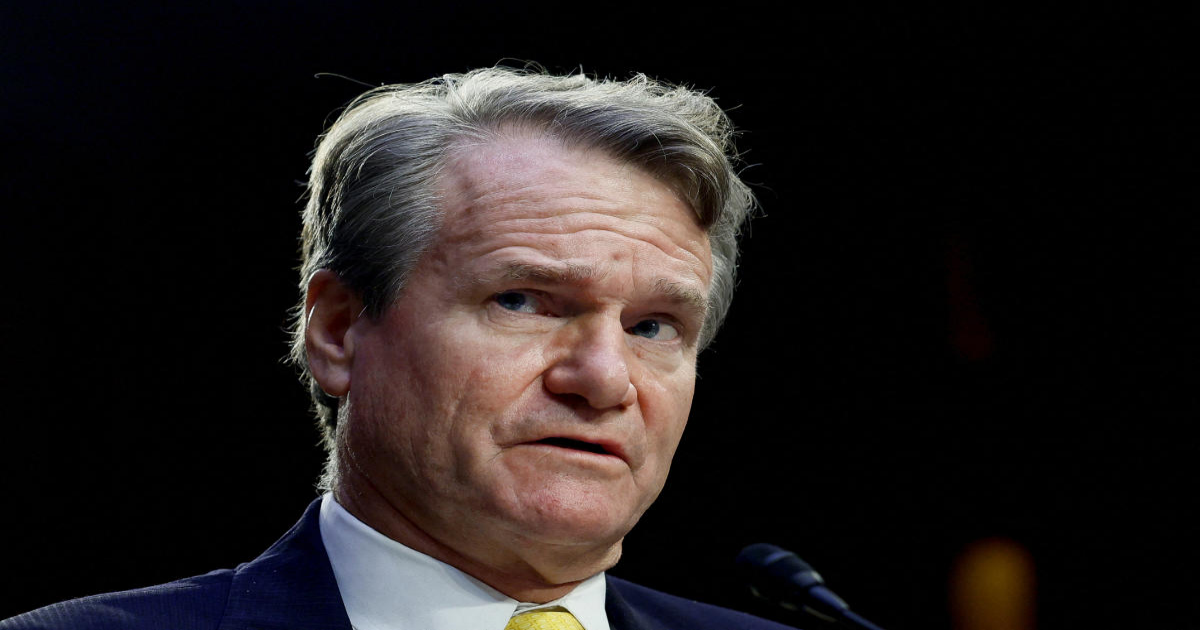Bank of America (BAC) reported a first-quarter rise in profits and revenue driven by robust trading results, becoming that latest big bank to benefit from the market volatility triggered by the start of President Trump’s tariff rollout in February and March.
CEO Brian Moynihan said in a statement that “our business clients have been performing well” and “consumers have shown resilience.”
At the same time he acknowledged “we potentially face a changing economy in the future” — a nod to the uncertainties ahead as some of Trump’s more aggressive tariffs are still in question. His CFO told reporters the bank’s research team doesn’t see a recession happening.
Total sales and trading revenue for the country’s second-largest bank was up 9% from the year-ago period to $5.66 billion, its highest quarterly haul in more than a decade. Bank of America’s revenue just from trading equities was up 17% to $2.2 billion, reaching the highest ever for one quarter.
Bank of America Chairman and CEO Brian Moynihan. REUTERS/Evelyn Hockstein · REUTERS / Reuters
JPMorgan Chase (JPM), Goldman Sachs (GS) and Morgan Stanley (MS) also reported jumps in trading amid market volatility during the first quarter.
However, investment banking fees dropped at Bank of America as companies became more cautious about new deals amid the uncertainties surrounding Trump’s trade policies. Those fees fees fell 3% from the year ago period to $1.52 billion.
Other big Wall Street banks also reported pullbacks in their investment banking operations during the first quarter.
Total profits for Bank of America were $7.4 billion. That figure was 11% higher than a year ago and exceeded what analysts expected. Its stock was up in pre-market trading.
NYSE – Delayed Quote • USD
The bank’s crucial measure of lending revenue, known as net interest income, was $14.6 billion. That was within the range of what it had predicted. It also maintained its full-year guidance for earning $15.5 billion to $15.7 billion in the final quarter of this year.
But there were signs that Bank of America expects credit conditions to worsen. It set aside $1.48 billion in credit provisions for potential future losses, more than 12% than it set aside a year ago.
CFO Alastair Borthwick told reporters “our research team at this point doesn’t believe we’ll see a recession, and our clients continue to show encouraging signs.”
“Our research team are still calling for modest growth,” he added. “They’ve talked about the fact that they think that some of the uncertainty may lead to a slowdown in the economy before it picks back up, but that would be very similar to things like the blue-chip consensus at this point, and similar to what Chairman Powell has said” — referring to Fed Chair Jerome Powell.
